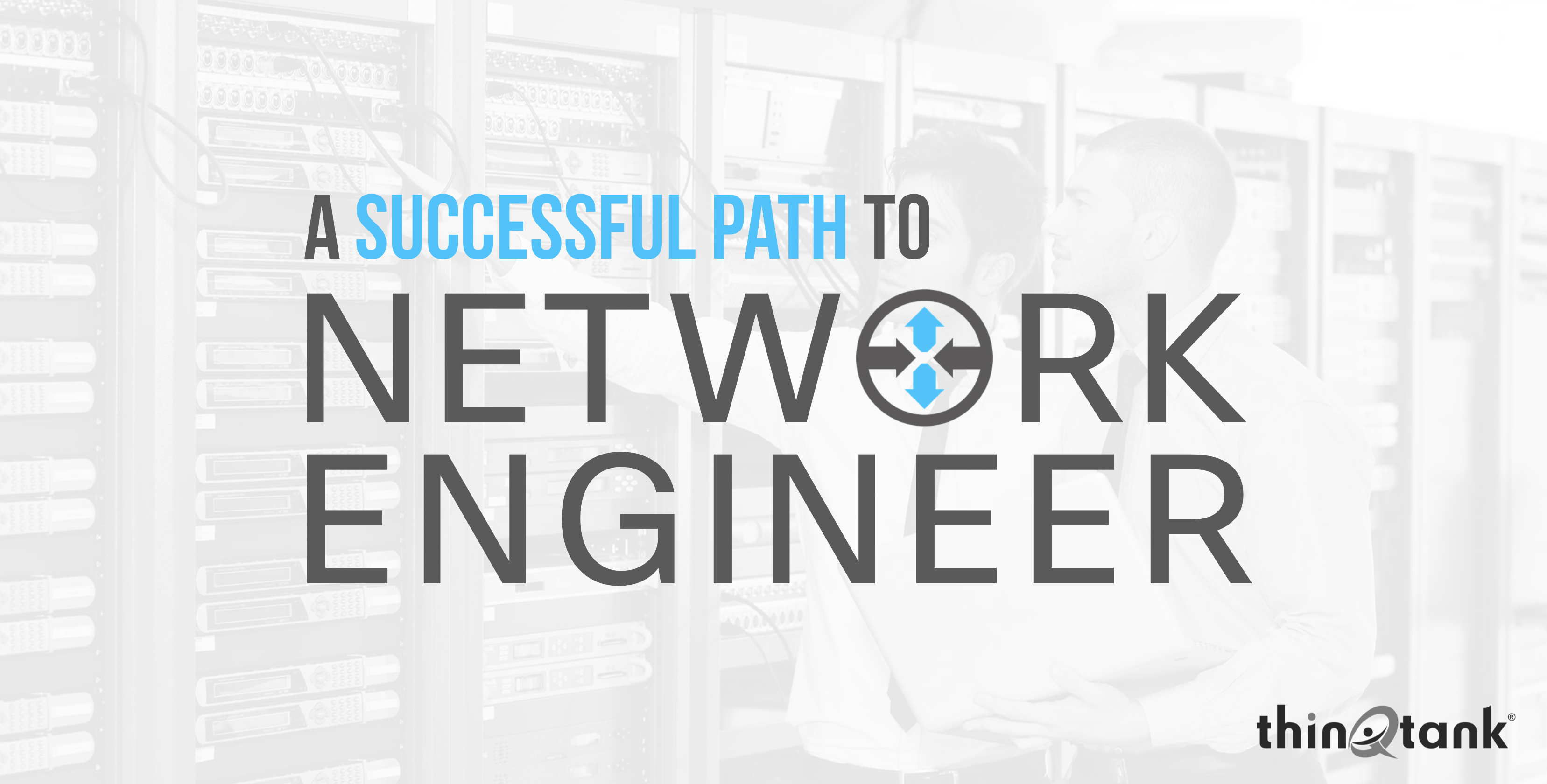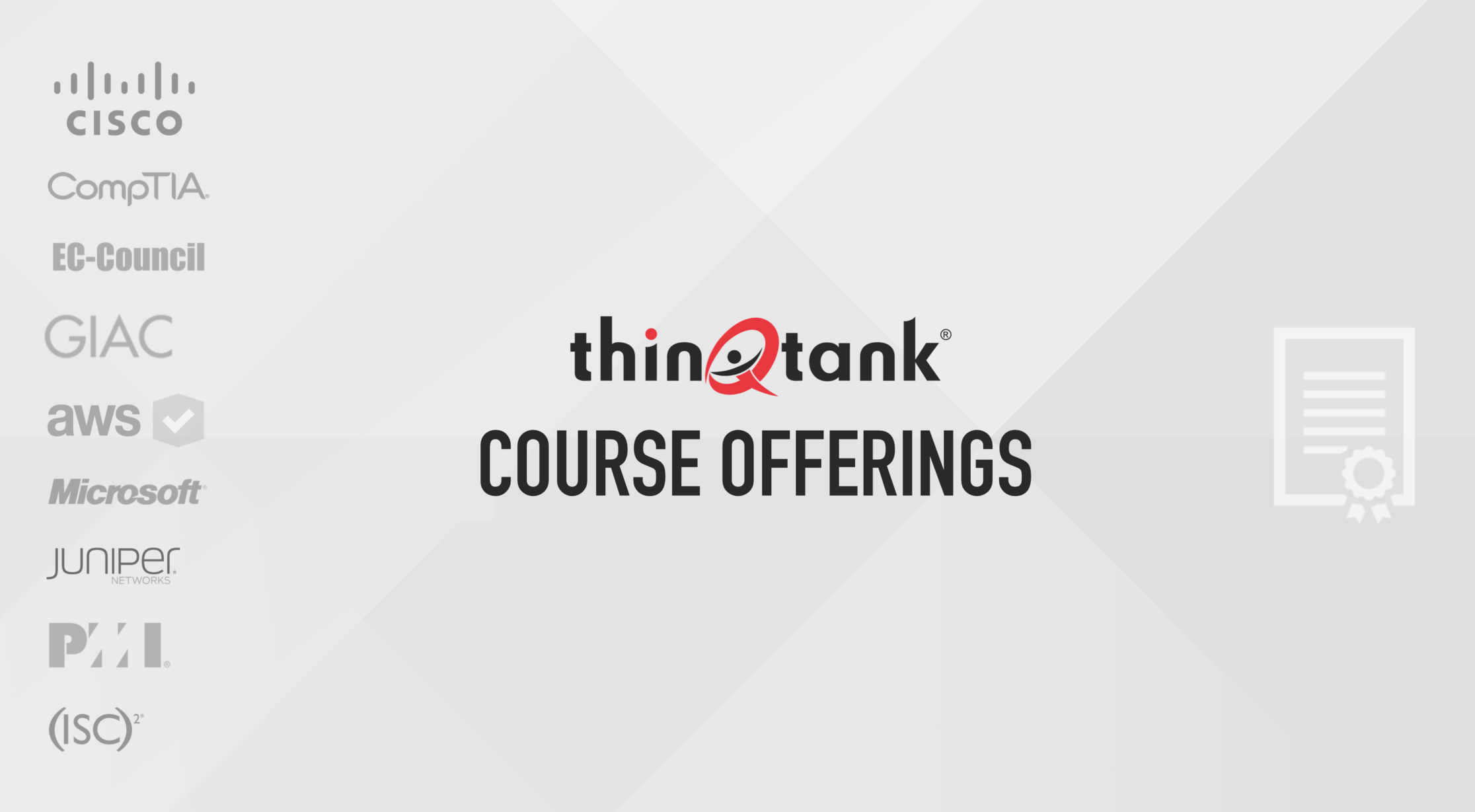A Successful Path To Network Engineer

So you want to be a network engineer. Where do you start? Here’s the good news — network engineers are in high demand. Companies are investing in newer, faster technology and mobile networks every day, increasing the need for highly trained network engineers. Network engineering is a fast-growing occupation. The Bureau of Labor Statistics estimates that network engineer employment is projected to grow 6 percent from 2016 to 2026, above average for all occupations.
![]()
Network engineers (also called network architects) plan, construct and manage networks to ensure they are optimized and functioning as intended. As a network engineer, you’re responsible for the foundation of an organization’s IT system (and by default, the entire organization).
While network technicians or IT administrators assist with daily IT and troubleshooting tasks, network engineers take on the high-level challenge of designing and improving networks. Depending on the company, you’ll be creating and implementing physical and wireless networks, troubleshooting issues and researching and integrating new technologies. Here are a few more networking career highlights:
Average salary: The national average salary for network engineers is $77, 484. Junior network engineers make around $64,000. The average salary for network analysts is $59,000.
Experience level: Most network engineers have 5-10 years of experience.
![]()
If you’re looking to break into the field of network engineering, here’s how to get started.
Get Your Bachelor’s Degree – Companies typically require a bachelor’s degree in computer science, information systems or computer engineering. Depending on the role, some organizations also ask that you earn a master’s in business administration (MBA) or computer science before applying.
Earn Relevant IT Experience – A bachelor’s or master’s degree will get your foot in the door. But it’s not enough. Learning on-the-job IT skills are critical to becoming a network engineer. First, you need to build a networking foundation. A help desk or entry-level IT support role is a great way to develop fundamental, real-world IT skills.
Get creative when choosing places to gain experience. Volunteer for small businesses or friends. Try an internship. Build your own PC or full stack networking project. You’ll gain networking skills, expand your portfolio of projects and you’ll have something to talk about in job interviews.
Once you’ve got the basic IT skills down, look for more relevant networking positions. Working as a junior network engineer or network analyst can help you gain networking experience. You’ll be assisting senior engineers with networking tasks, and it’s a great way to build your skill set.
Maximize the experience in every role. Work on as many different projects as you can. Volunteer to take on new tasks. Make connections with partner engineers or vendors. You’ll be more well-rounded, and it will help you narrow down your specialization.
![]()
Once you’ve gained entry-level IT experience, you need to identify your career path. Networking engineering careers and positions vary widely depending on the industry, company and technology. If you’re just starting out, here’s a list of some of the networking jobs available:
• Network Specialist
• Network Administrator
• Network Technician
• Network Analyst
• Network Manager
• Network Engineer
• Network Solutions Architect
![]()
You may specialize even further in the course of your networking career. Roles range from cloud and security specializations, such as a network security specialist or cloud networking architect, to wireless and VoIP concentrations as a wireless networking quality assurance or VoIP engineer. You could also choose to dabble in a little bit of everything as a full stack network engineer (FSNE).
Networks are complicated. Rather than hiring people to focus on each area of IT, companies are increasingly looking for professionals with cross-functional skills. Full stack network engineers are trained in all areas of IT from routing, wireless, security, data center, automation, cloud and VoIP.
Training is more difficult for FSNEs. There isn’t a clear-cut path or certification. Instead of using your time to specialize in one area, try different roles and projects to round out your skill set. If you’re not sure what route you want to take, here are two strategies to help you define your path.
Reach out to other network engineers for advice. Talk about your career aspirations with your manager or a mentor. They may be able to help you transition into more networking roles.
Research senior-level network engineer jobs. Look at the job postings that interest you. What skills and requirements are companies looking for? Any certifications or courses? Researching jobs can help you identify interests and skill gaps you can improve upon.
![]()
Training courses and IT certifications are a great way to supplement on-the-job training. With networking training courses, you’ll learn about operating systems, information security, network administration and programming essentials. Depending on the organization, they may require specific certifications or training courses.
Microsoft, Cisco, Citrix, CompTIA, VMware and Red Hat all offer network engineer training and certifications. Cisco is one of the more popular training options. Courses include the theory of computer networking, test practical knowledge and teach you how to perform networking tasks. Here are the core Cisco networking certifications:
• Cisco Certified Entry Networking Technician (CCENT)
• Cisco Certified Network Associate (CCNA) — Routing and Switching
• Cisco Certified Network Professional Level (CCNP) — Routing and Switching
![]()
Network engineering is an exciting, challenging field. But you can’t get there on your own. Whether you’re looking for an IT certification or just want to take a few networking courses, thinQtank® Learning can help you develop networking skills to boost your career.
thinQtank® Learning offers the most comprehensive and up-to-date network training available. With instructor-led training options, you have access to real experts and resources to confidently advance your networking career in no time.
If you have any questions about our Training and Certification Programs, we would love to hear from you! Give us a call at 855-TO-THINQ (855-868-4467) or email website@thinqtanklearning.com.


